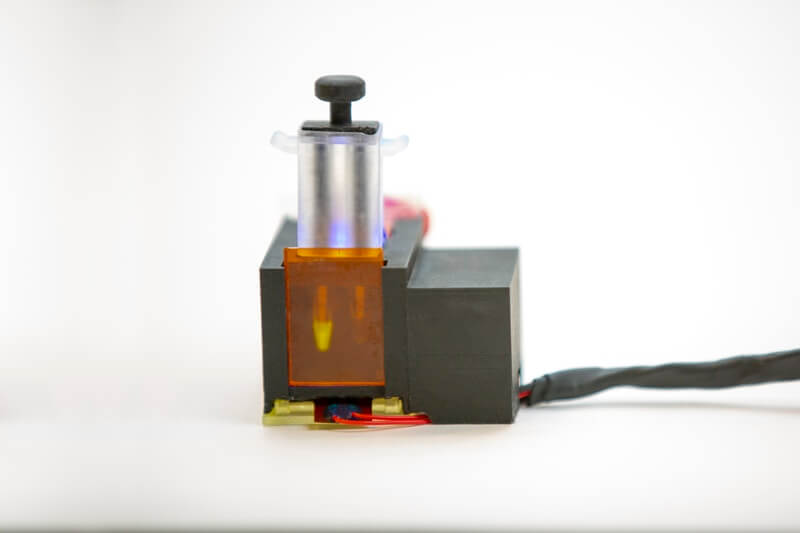This CRISPR-Based Test Can Detect COVID-19 Variants From Your Spit
COVID-19 cases are on the rise once again in the US. Over the past week, more than 100,000 daily cases have been reported. This surge is driven by the Delta variant, mostly affecting the unvaccinated people. However, this is concerning for everyone as the high transmission rate also increases the probability of new variants emerging.
Increasing evidence shows that variants of concern can be more transmissible, and vaccines can be less effective against them. For this reason, it is crucial to monitor and test for different variants. Current tests only allow for the detection of COVID-19 but provide no information about variants unless the sample is sent for more advanced, costly, and time-consuming analysis.
To address these issues, a group of scientists from the Wyss Institute for Biologically Inspired Engineering at Harvard, the Massachusetts Institute of Technology, and other Boston-area hospitals developed Minimally Instrumented SHERLOCK (miSHERLOCK), a novel low-cost CRISPR-based diagnostic platform that uses saliva to detect the presence of SARS-CoV-2. It can also differentiate between the Alpha, Beta, and Gamma variants. The new test, published in the journal Science Advances, offers significant advantages over commercially available tests.
As explained by co-first author Helena de Puig, a Postdoctoral Fellow, “miSHERLOCK eliminates the need to transport patient samples to a centralized testing location and greatly simplifies the sample preparation steps, giving patients and doctors a faster, more accurate picture of individual and community health, which is critical during an evolving pandemic.”
| Related Article: The 6 Companies Leading the Resurgence in RNA Editing R&D |
Exploiting CRISPR for Viral Detection
The miSHERLOCK combines two novel technologies.
- A novel instrument-free extraction of viral RNA from saliva, and
- A reaction that detects SARS-CoV-2 and its variants
By using saliva, this test allows for non-invasive self-collection, unlike the nasopharyngeal swabs. Normally, saliva requires several processing steps, but the team of scientists developed a novel filtration and concentration step, which utilizes heat to deactivate enzymes that can interfere with the test, and a porous membrane that traps viral RNA.

miSHERLOCK (Photo Credit/Wyss Institute at Harvard University)
Following the collection of RNA, the test utilizes the RNA-targeting enzyme Cas12a and guides RNA (gRNA) that would identify most SARS-CoV-2. The team went further and developed gRNA against the B.1.1.7 or Alpha variant, originally discovered in the United Kingdom, B.1.351 or Beta variant, originally discovered in South Africa, and P.1 or Gamma variant, originally discovered in Brazil.
If a patient is infected, the Cas12a enzyme would bind and cleave to the viral RNA. After cutting its target, Cas12a can cleave other RNA molecules in a process termed “collateral activity.” Scientists use this phenomenon to cleave a signaling molecule.
The signaling molecule emits a fluorescent light that is easily seen by the eye. However, the team at Wyss has developed a companion smartphone application. Using a smartphone camera, the app can detect, quantify the signal, and upload the results for real-time disease tracking. The whole process takes less than one hour.
The miSHERLOCK device can be assembled using a 3D printer and produced for about $15. Reusing hardware can bring the cost down to $6 per test. Together these advantages make the miSHERLOCK a promising tool to be used in low-resource settings. In addition, the ability to quickly develop tests for new variants can greatly aid in surveillance.
©www.geneonline.com All rights reserved. Collaborate with us: service@geneonlineasia.com








